CHAPTER XI
您可以在百度里搜索“Now It Can Be Told 艾草文学(www.321553.xyz)”查找最新章节!
CHAPTER XI
Our men were not always in the trenches. As the New Army grew in numbers reliefs were more frequent than in the old days, when battalions held the line for long spells, until their souls as well as their bodies were sunk in squalor. Now in the summer of 1915 it was not usual for men to stay in the line for more than three weeks at a stretch, and they came back to camps and billets, where there was more sense of life, though still the chance of death from long-range guns. Farther back still, as far back as the coast, and all the way between the sea and the edge of war, there were new battalions quartered in French and Flemish villages, so that every cottage and farmstead, villa, and chateau was inhabited by men in khaki, who made themselves at home and established friendly relations with civilians there unless they were too flagrant in their robbery, or too sour in their temper, or too filthy in their habits. Generally the British troops were popular in Picardy and Artois, and when they left women kissed and cried, in spite of laughter, and joked in a queer jargon of English-French. In the estaminets of France and Flanders they danced with frowzy peasant girls to the tune of a penny-in-the-slot piano, or, failing the girls, danced with one another.
For many years to come, perhaps for centuries, those cottages and barns into which our men crowded will retain signs and memories of that British occupation in the great war. Boys who afterward went forward to the fighting-fields and stepped across the line to the world of ghosts carved their names on wooden beams, and on the whitewashed walls scribbled legends proclaiming that Private John Johnson was a bastard; or that a certain battalion was a rabble of ruffians; or that Kaiser Bill would die on the gallows, illustrating those remarks with portraits and allegorical devices, sketchily drawn, but vivid and significant.
The soldier in the house learned quite a lot of French, with which he made his needs understood by the elderly woman who cooked for his officers' mess. He could say, with a fine fluency, “Ou est le blooming couteau?” or “Donnez-moi le bally fourchette, s'il vous plait, madame.” It was not beyond his vocabulary to explain that “Les pommes de terre frites are absolument all right if only madame will tenir ses cheveux on.” In the courtyards of ancient farmhouses, so old in their timbers and gables that the Scottish bodyguard of Louis XI may have passed them on their way to Paris, modern Scots with khaki-covered kilts pumped up the water from old wells, and whistled “I Know a Lassie” to the girl who brought the cattle home, and munched their evening rations while Sandy played a “wee bit” on the pipes to the peasant—folk who gathered at the gate. Such good relations existed between the cottagers and their temporary guests that one day, for instance, when a young friend of mine came back from a long spell in the trenches (his conversation was of dead men, flies, bombs, lice, and hell), the old lady who had given him her best bedroom at the beginning of the war flung her arms about him and greeted him like a long-lost son. To a young Guardsman, with his undeveloped mustache on his upper lip, her demonstrations were embarrassing.
It was one of the paradoxes of the war that beauty lived but a mile or two away from hideous squalor. While men in the lines lived in dugouts and marched down communicating trenches thigh-high, after rainy weather, in mud and water, and suffered the beastliness of the primitive earth-men, those who were out of the trenches, turn and turn about, came back to leafy villages and drilled in fields all golden with buttercups, and were not too uncomfortable in spite of overcrowding in dirty barns.
There was more than comfort in some of the headquarters where our officers were billeted in French chateaux. There was a splendor of surroundings which gave a graciousness and elegance to the daily life of that extraordinary war in which men fought as brutally as in prehistoric times. I knew scores of such places, and went through gilded gates emblazoned with noble coats of arms belonging to the days of the Sun King, or farther back to the Valois, and on my visits to generals and their staffs stood on long flights of steps which led up to old mansions, with many towers and turrets, surrounded by noble parks and ornamental waters and deep barns in which five centuries of harvests had been stored. From one of the archways here one might see in the mind's eye Mme. de Pompadour come out with a hawk on her wrist, or even Henri de Navarre with his gentlemen-at-arms, all their plumes alight in the sun as they mounted their horses for a morning's boar-hunt.
It was surprising at first when a young British officer came out and said, “Toppin' morning,” or, “Any news from the Dardanelles?” There was something incongruous about this habitation of French chiteaux by British officers with their war-kit. The strangeness of it made me laugh in early days of first impressions, when I went through the rooms of one of those old historic houses, well within range of the German guns with a brigade major. It was the Chateau de Henencourt, near Albert.
“This is the general's bedroom,” said the brigade major, opening a door which led off a gallery, in which many beautiful women of France and many great nobles of the old regime looked down from their gilt frames.
The general had a nice bed to sleep in. In such a bed Mme. du Barry might have stretched her arms and yawned, or the beautiful Duchesse de Mazarin might have held her morning levee. A British general, with his bronzed face and bristly mustache, would look a little strange under that blue-silk canopy, with rosy cherubs dancing overhead on the flowered ceiling. His top-boots and spurs stood next to a Louis Quinze toilet-table. His leather belts and field-glasses lay on the polished boards beneath the tapestry on which Venus wooed Adonis and Diana went a-hunting. In other rooms no less elegantly rose-tinted or darkly paneled other officers had made a litter of their bags, haversacks, rubber baths, trench—boots, and puttees. At night the staff sat down to dinner in a salon where the portraits of a great family of France, in silks and satins and Pompadour wigs, looked down upon their khaki. The owner of the chateau, in whose veins flowed the blood of those old aristocrats, was away with his regiment, in which he held the rank of corporal. His wife, the Comtesse de Henencourt, managed the estate, from which all the men-servants except the veterans had been mobilized. In her own chateau she kept one room for herself, and every morning came in from the dairies, where she had been working with her maids, to say, with her very gracious smile, to the invaders of her house: “Bon jour, messieurs! Ca va bien?”
She hid any fear she had under the courage of her smile. Poor chateaux of France! German shells came to knock down their painted turrets, to smash through the ceilings where the rosy Cupids played, and in one hour or two to ruin the beauty that had lived through centuries of pride.
Scores of them along the line of battle were but heaps of brick-dust and twisted iron.
I saw the ruins of the Chateau de Henencourt two years after my first visit there. The enemy's line had come closer to it and it was a target for their guns. Our guns—heavy and light—were firing from the back yard and neighboring fields, with deafening tumult. Shells had already broken the roofs and turrets of the chateau and torn away great chunks of wall. A colonel of artillery had his headquarters in the petit salon. His hand trembled as he greeted me.
“I'm not fond of this place,” he said. “The whole damn thing will come down on my head at any time. I think I shall take to the cellars.”
We walked out to the courtyard and he showed me the way down to the vault. A shell came over the chateau and burst in the outhouses.
“They knocked out a 9.2 a little while ago,” said the colonel. “Made a mess of some heavy gunners.”
There was a sense of imminent death about us, but it was not so sinister a place as farther on, where a brother of mine sat in a hole directing his battery... The Countess of Henencourt had gone. She went away with her dairymaids, driving her cattle down the roads. Now It Can Be Told




